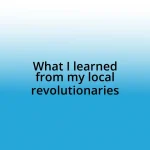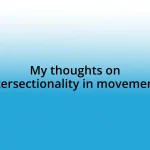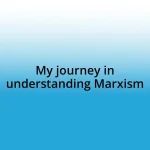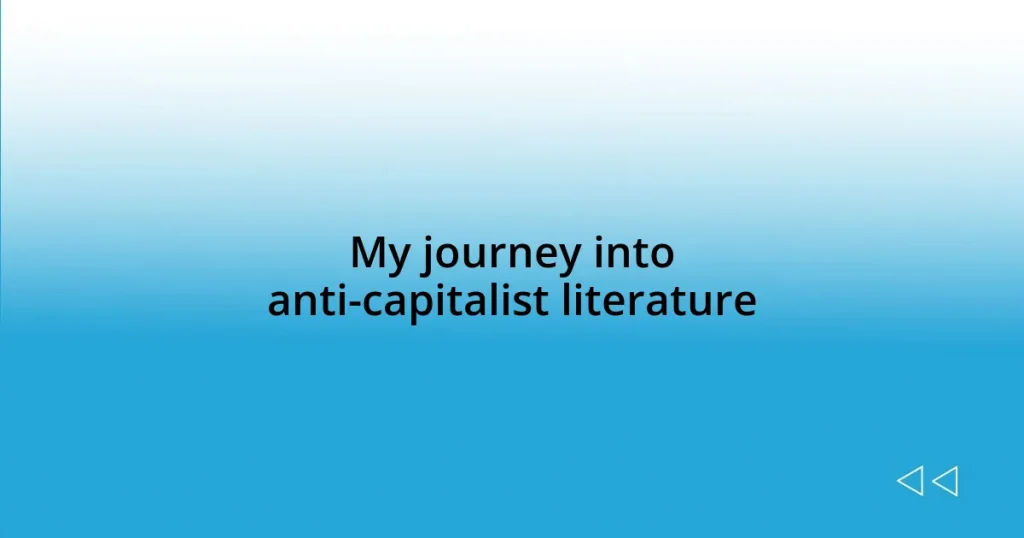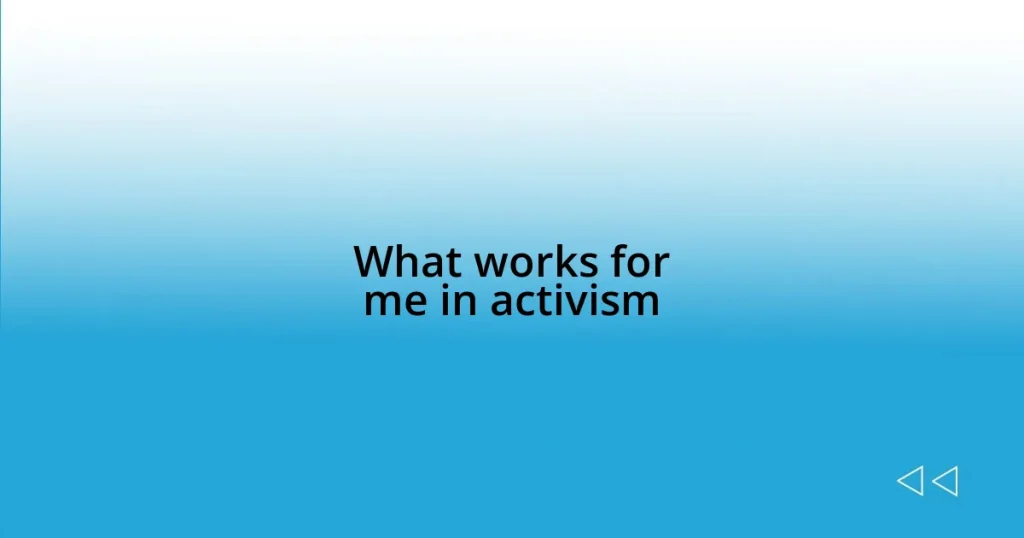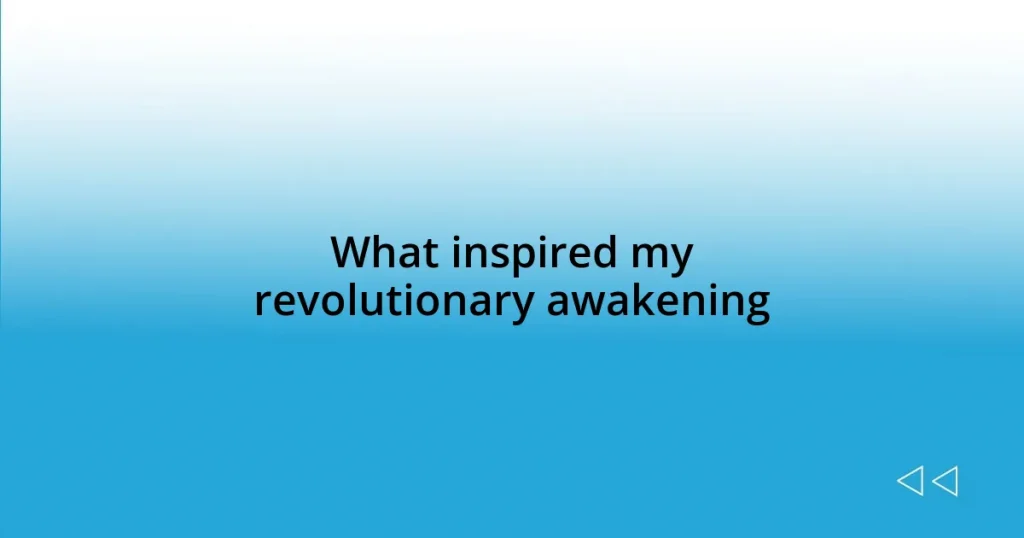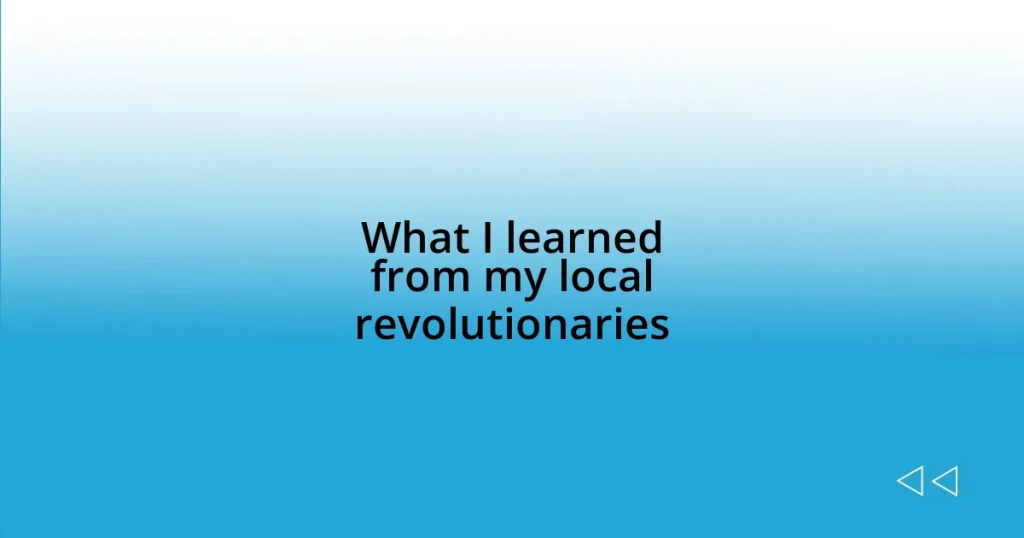Key takeaways:
- Anti-capitalist literature deepens awareness of economic inequalities and invites critical reflection on personal consumption habits.
- Key authors like Karl Marx, Naomi Klein, and bell hooks provide transformative insights that challenge societal norms and provoke activism.
- Thematic explorations include critiques of consumerism, the importance of community, and the potential for social and environmental justice.
- Engaging with anti-capitalist ideas encourages discomfort that leads to personal growth and fosters community discussions for greater awareness.
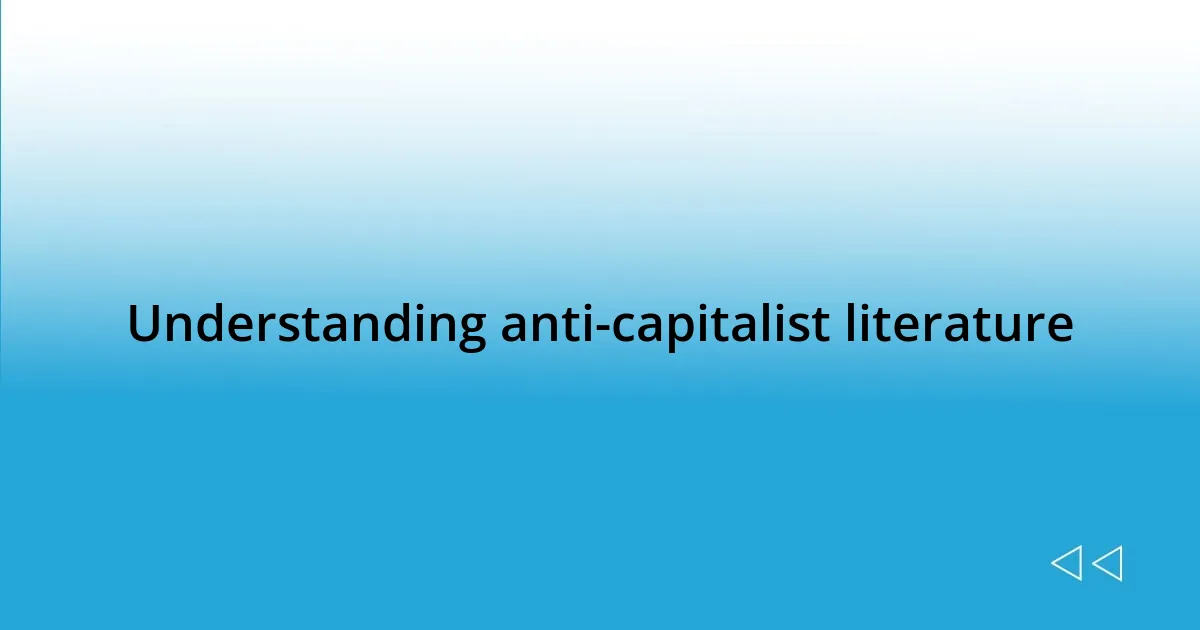
Understanding anti-capitalist literature
Anti-capitalist literature serves as a powerful lens through which we can examine the flaws and inequalities inherent in our economic system. For me, diving into these works felt like peeling back the layers of a deeply entrenched social fabric that often goes unnoticed. Has there ever been a moment for you when a book truly challenged your worldview?
In my experience, the most compelling texts in this genre don’t just present critiques; they evoke emotions that linger long after reading. For instance, I remember finishing “The Dispossessed” by Ursula K. Le Guin, and I was struck by the stark contrast between her imagined societies. It left me pondering: what if we could envision a world unshackled from capitalist constraints?
Moreover, anti-capitalist literature often invites readers to question their own complicity in societal norms. I found myself grappling with questions about consumerism after reading “No Logo” by Naomi Klein. It pushed me to reflect on my consumption habits and their broader implications—did I really need that latest gadget, or was I just feeding a system designed to perpetuate dissatisfaction? Such realizations can be both jarring and enlightening, prompting us to reevaluate our place in the world.
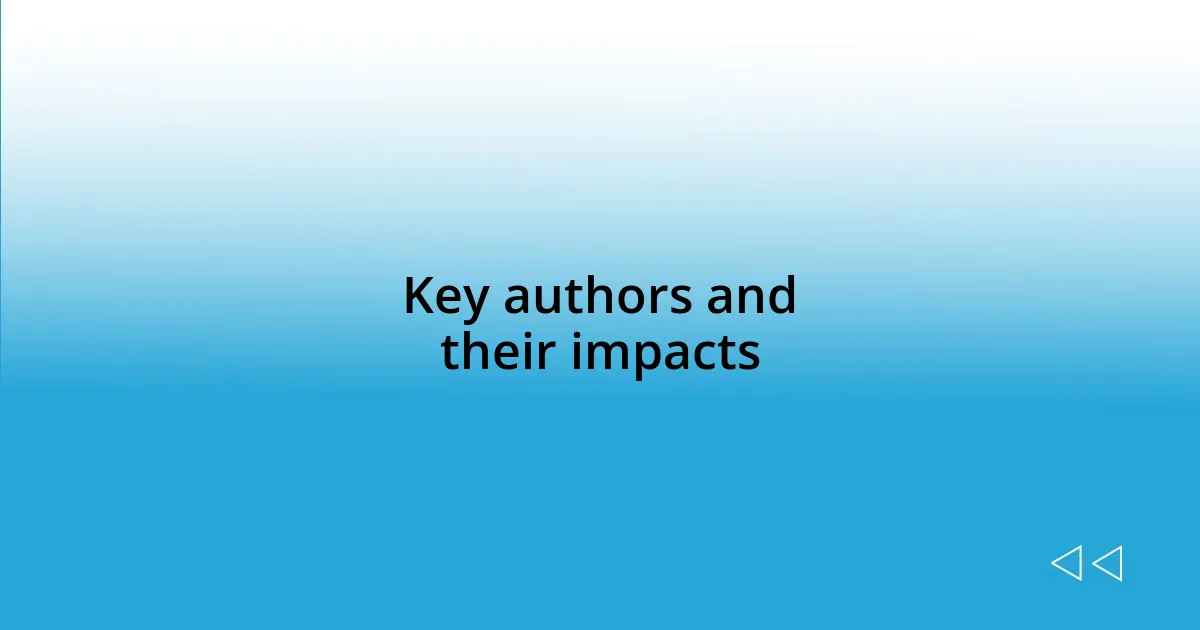
Key authors and their impacts
When I think about key authors in anti-capitalist literature, a few notable names come to mind. Each has contributed significantly to the discourse, igniting conversations that challenge the status quo. For instance, bell hooks’ work often emphasizes the intersections of race, gender, and capitalism, making me increasingly aware of how these systems intertwine. Reading her essays feels like having a deep, transformative conversation with a wise friend who holds a mirror to society’s flaws.
- Karl Marx: His foundational texts, such as “The Communist Manifesto,” dissect class struggle, prompting readers to consider their own socio-economic standings.
- Naomi Klein: With “This Changes Everything,” she masterfully ties climate change to capitalist structures, pushing me to think critically about environmental activism.
- Ursula K. Le Guin: In “The Dispossessed,” Le Guin’s exploration of anarchism and capitalism reverberates through my thoughts, encouraging me to question my own societal assumptions.
- David Graeber: His book “Debt: The First 5,000 Years” reshaped my understanding of value and economics, fostering a curiosity that led me deeper into anti-capitalist critique.
- bell hooks: She intertwines love and social justice in her writings, profoundly impacting how I view resistance and the role of personal relationships in enacting change.
I often find myself reflecting on how these authors have collectively shaped my worldview. Their words resonate deeply, compelling me to engage with both literature and activism in a more conscious way.
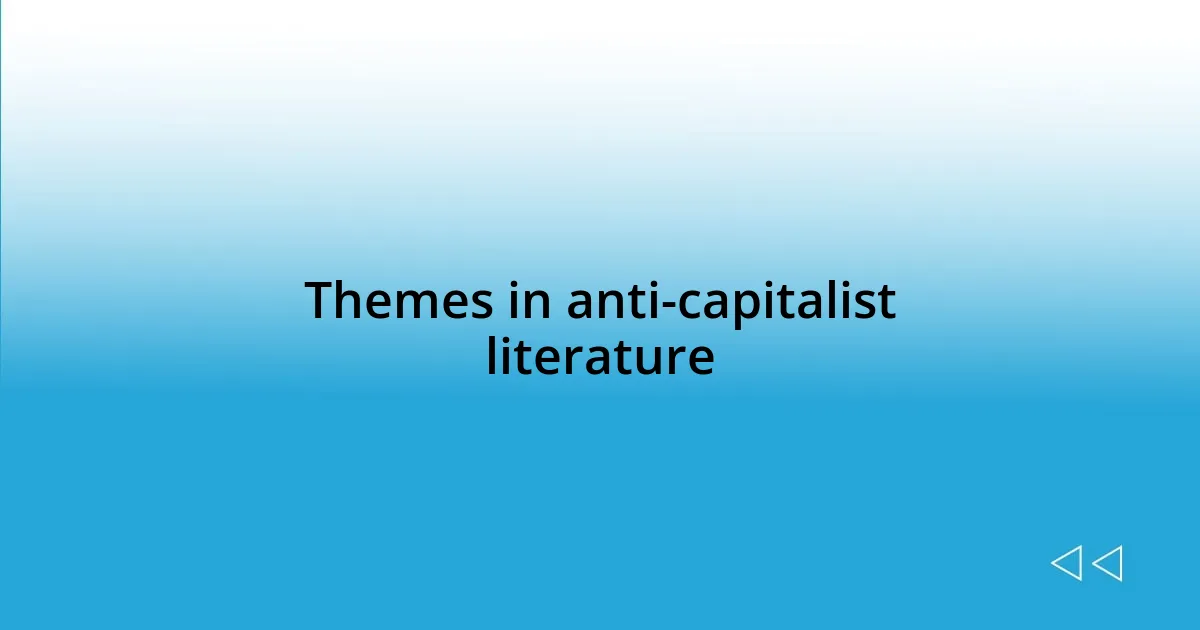
Themes in anti-capitalist literature
As I delve into anti-capitalist literature, I often come across themes that reveal the deep-seated inequities of our capitalist society. One theme that resonates with me is the critique of consumerism. For instance, when I read “American Psycho” by Bret Easton Ellis, I was struck by how it showed the hollowness of a lifestyle solely driven by material possession. It made me ponder: are we losing our humanity in the pursuit of constant consumption?
Another prevalent theme is the notion of community versus individualism. Works like “The Dispossessed” reveal an alternative vision of societal organization focused on collective well-being over personal gain. This theme has encouraged me to reflect on my community engagements, prompting me to ask whether my actions contribute to a supportive network or simply reinforce individualistic tendencies. Have you ever thought about how your choices impact those around you?
Lastly, anti-capitalist literature often embodies a sense of hope and possibility. Books like “This Changes Everything” inspire me to envision a world where social justice can flourish amid environmental crises. These narratives challenge me to engage in activism, reminding me that change is not only necessary but achievable, igniting a fire within to participate in movements that advocate for meaningful reform.
| Theme | Description |
|---|---|
| Consumerism | Critiques the emptiness of a life driven by material possessions, pushing readers to reconsider their consumption habits. |
| Community vs. Individualism | Explores the importance of collective well-being over personal gain, urging readers to reflect on their community impact. |
| Hope and Possibility | Emphasizes the potential for social and environmental justice, inspiring readers to join activism for meaningful change. |
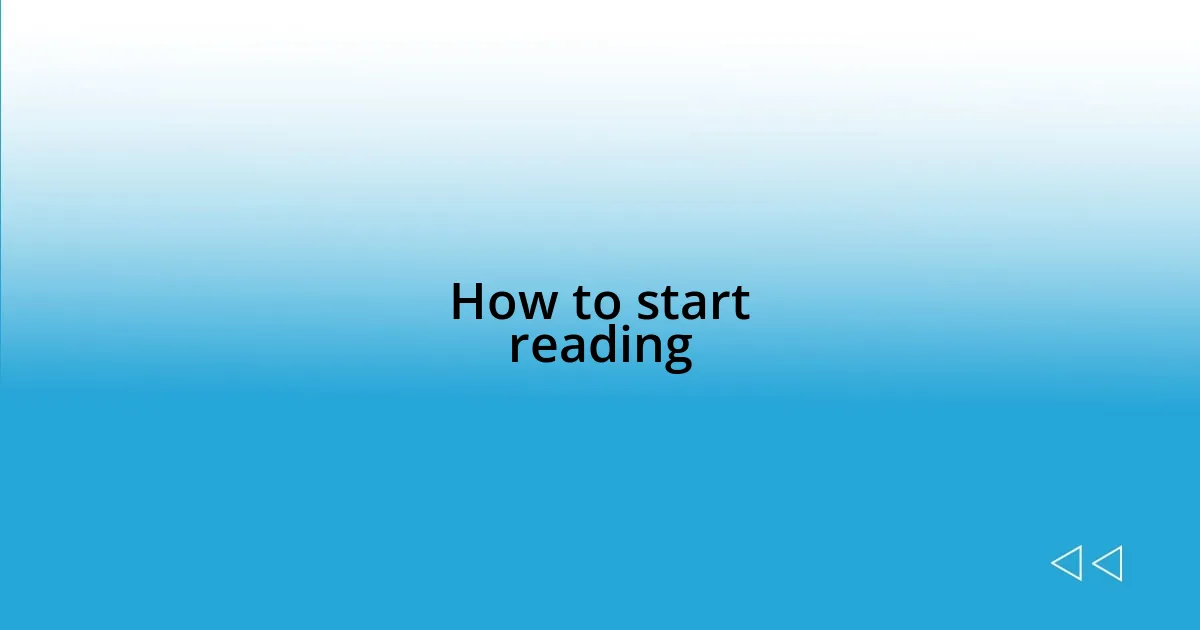
How to start reading
When starting to explore anti-capitalist literature, I recommend selecting a few key texts that resonate with your interests. For me, diving into Marx’s “The Communist Manifesto” was pivotal; it opened my eyes to class structures and their inherent conflicts. Have you ever wondered how the socio-economic divides affect your own community?
As I navigated my selections, I embraced a mix of genres, from academic essays to fiction. Engaging with Naomi Klein’s “This Changes Everything” felt like a wake-up call. It not only critiques capitalist greed but also prompts critical reflection about my role in the climate crisis. It’s vital to let different styles and perspectives challenge your thoughts—better yet, to provoke feelings that make you want to act.
Lastly, I found it helpful to keep a reading journal. I jotted down my thoughts and feelings as I processed each book. Reflecting on these insights allowed me to deepen my understanding and connection to the material. Have you tried capturing your thoughts while reading? It might just transform your journey into something truly enlightening.
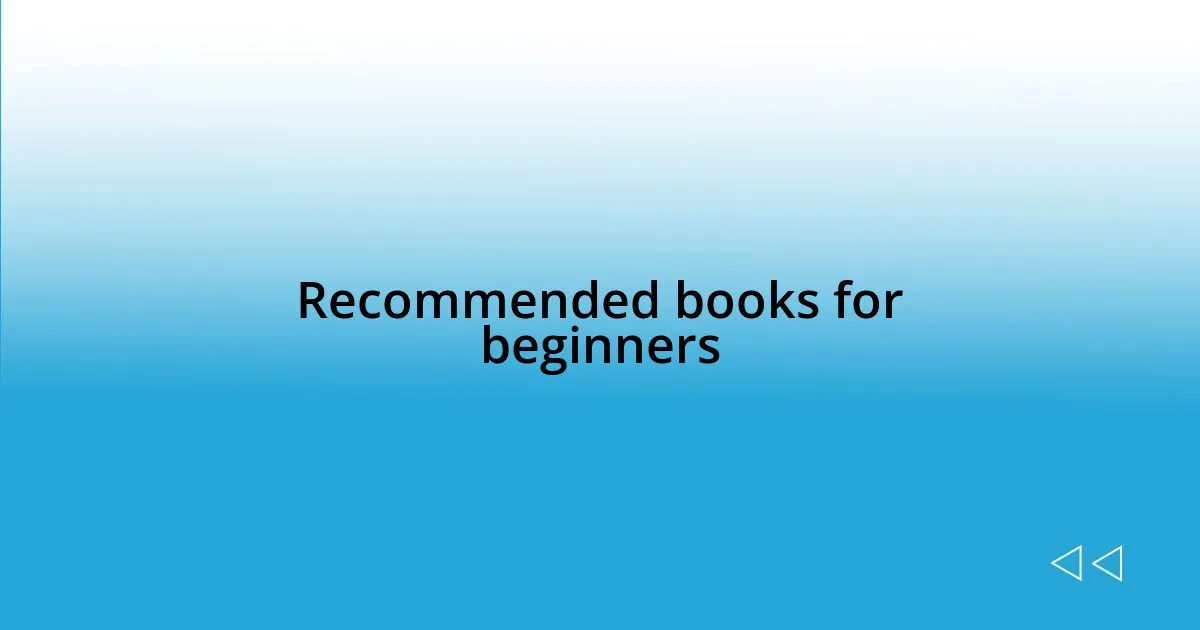
Recommended books for beginners
One book that I believe every beginner should consider is “Capitalism: A Ghost Story” by Arundhati Roy. It vividly lays bare the truths behind globalization and its harrowing effects on society. I remember the moment I finished it; I felt an urgent need to discuss its ideas with friends, sparking some eye-opening conversations about economic injustice.
Another excellent choice is “The Shock Doctrine” by Naomi Klein. This book really struck a chord with me because it offers a historical perspective on capitalism’s most ruthless practices. Klein’s storytelling compelled me to reflect on how often we overlook the broader implications of economic policies in our daily lives. Have you ever thought about the invisible hands shaping the world around us?
Lastly, I cannot recommend “The Invisible Man” by Ralph Ellison enough. While it’s more fiction than traditional anti-capitalist literature, its themes of identity and race within a capitalist society are powerful. I felt deeply connected to the protagonist’s struggles, prompting me to question how economic systems influence personal experiences. Have you considered how your own identity plays a role in your understanding of capitalism? This book brought me to new insights that changed my perspective.
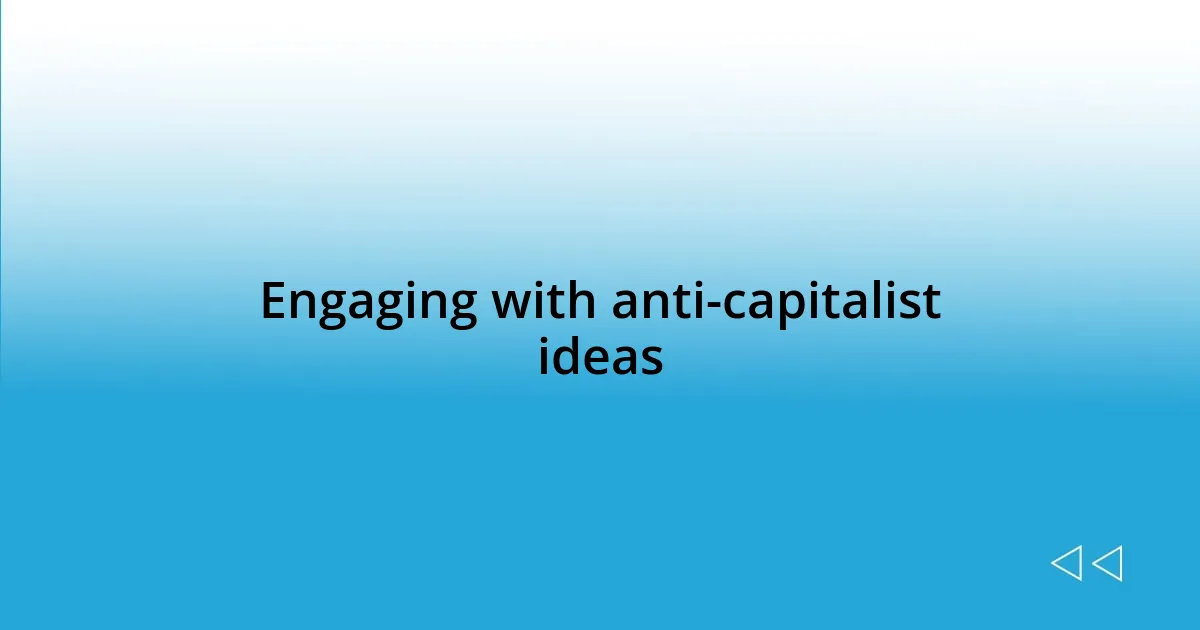
Engaging with anti-capitalist ideas
Engaging with anti-capitalist ideas often requires a bit of discomfort, and I’ve learned to embrace that unease. For instance, when I first encountered terms like “exploitation” or “alienation,” I felt a mix of anger and clarity. Have you ever felt that churn in your stomach when confronting uncomfortable truths? It’s a sign that growth is happening.
I also found it liberating to explore how anti-capitalist theories connect to contemporary issues. While reading about the gig economy, I remember thinking of my friends hustling on side jobs just to make ends meet. It made me question the narratives we’re told about work and success. Why do we accept such a system that often leads to burnout rather than fulfillment? It sparked a desire in me to advocate for fairness and social justice.
Conversations about these ideas are equally impactful. I often engage friends in discussions that dig deeper into the implications of capitalism on everyday life. I recall a lively debate over dinner, where we examined the impact of consumer culture on our values. What do you think happens when we’re so wrapped up in materialism that we lose sight of community? This kind of discourse not only enhances my understanding but also strengthens bonds with others, creating a shared journey towards awareness.
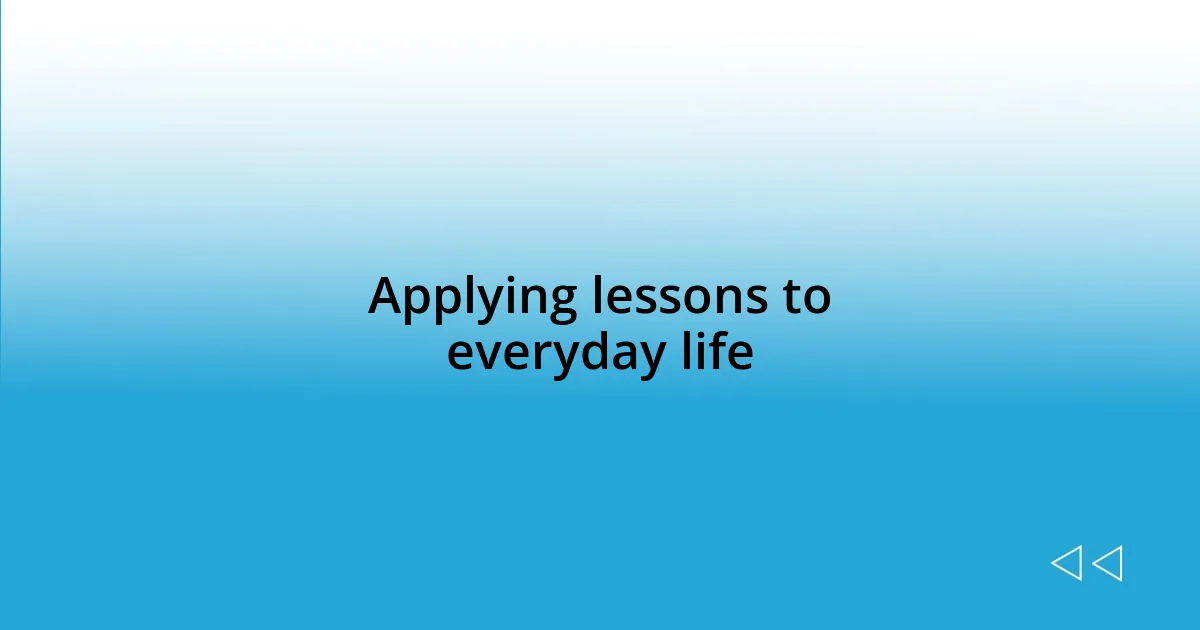
Applying lessons to everyday life
When I think about applying anti-capitalist lessons to everyday life, one significant aspect comes to mind: conscientious consumption. I remember a trip to my local farmers’ market when I made a deliberate choice to support small, ethical producers instead of big corporations. This decision not only made me feel proud, but it also deepened my understanding of how our spending habits can reflect our values. Have you ever noticed how a simple choice like this can ripple through your community?
Another lesson I’ve absorbed is the importance of community over competition. I reflect on a time when my friends and I decided to organize a skill-sharing event. Instead of seeing each other as rivals, we collaborated, pooling our skills to assist one another—be it in gardening, cooking, or crafting. This experience was a beautiful reminder that we can thrive together and that mutual support can challenge the individualistic mindset often promoted in capitalism. How often do you find opportunities to uplift those around you rather than compete?
Lastly, I’ve learned to question the narratives fed to us about success. I still recall an evening spent chatting with a mentor who shared her own journey of prioritizing passion over profits. Listening to her stories made me reflect on my career choices and what truly brings me joy versus mere financial stability. The conversation was eye-opening and made me wonder, what does success mean to you? Are we all just chasing the same elusive dream? It’s crucial to redefine our metrics for success, aligning them with our values rather than societal pressures.



